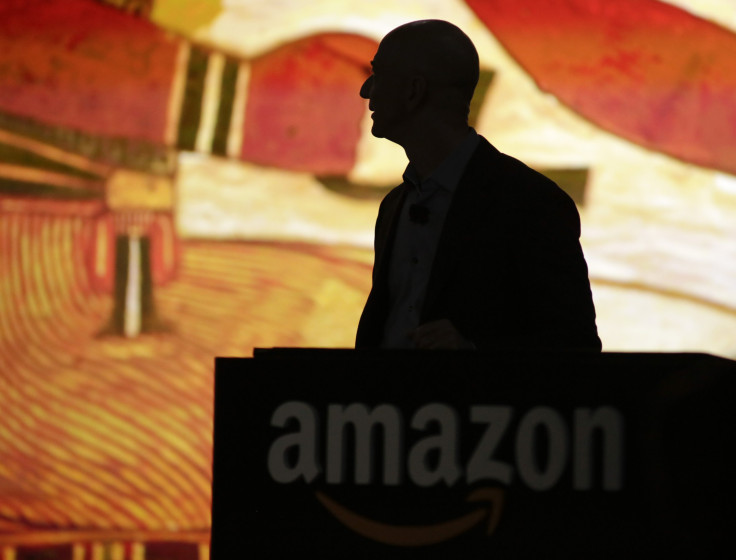Amazon Hits Hachette Where It Hurts

With no end in sight to the monthslong contract renewal standoff between Amazon and Hachette Book Group, Amazon reportedly sent a letter last weekend to some Hachette authors, dangling an offer of 100 percent royalties on e-books until Hachette and Amazon negotiate a new contract. Amazon skeptics dismissed the strategy as a transparent PR move to make Hachette look uncooperative.
Amazon (NASDAQ:AMZN) has insisted that its offer – which Hachette, a unit of French conglomerate Lagardère (Euronext:MMB), pre-emptively rejected after learning it was on the way -- is sincere and benevolent, a way to take authors out of the middle of the dispute. But rather than giving them a neutral path, the offer could instead push those Hachette authors siding with their publisher, or those who are ambivalent, further toward the mega-retailer.
“Much has been made of how quiet many authors have been [about the negotiations], and many have speculated writers are too frightened of Amazon to speak out,” Hachette author Richard Russo (“Nobody's Fool,” “Lucky Man”) told IBTimes in June. “There may be some truth to this, but it's also true that many writers feel at least a degree of ambivalence. Our publishers have been screwing us on e-book royalties for a very long time,” he said.
This is not the first time Amazon has tried to sell an offer that seems too good to be true -- but the last time it did, Hachette bought it. The current dispute has ties to an earlier agreement Amazon made with Hachette prior to the publisher's involvement in a price-fixing suit, whose settlement terms require Hachette and the other Big Five publishers to renegotiate their contracts with Amazon; Hachette was the first among them to be called to the negotiating table. In March 2012, just after the Justice Department announced its intention to sue the publishers, best-selling Hachette author Scott Turow (who’s also an attorney) described the fundamental problem with the agreement in an interview with Salon.
In order to persuade publishers to release e-books to Amazon on the same day hardcover editions became available, Turow explained, Amazon offered to give publishers the same cut of e-books they would get on hardcover sales.
“So publishers think that sounds fine, how can they complain about that? They agree and are then stunned when Amazon announces that they’re going to sell every e-book at a loss, for $9.99. That’s an average loss of $4 to $5 a book,” Turow told Salon, adding, “Bookstores are pretty hard-pressed by book discounting as it is, and the idea of selling ebooks at a loss made it impossible for them to enter the marketplace in competition with Amazon.”
It also strained relations between authors and their publishers, who made a 25 percent net author royalty that is standard for e-books. In Turow's telling, publishers told authors they couldn't budge on the royalty percentage because “everyone knew that Amazon wouldn't be paying them $14 to $15 per title indefinitely,” he said.
But so far, Amazon has, and publishers have yet to increase author's royalty percentage on e-books. “Publishers claim to hate e-books,” Russo said, “but they make more per sale on an e-book than they do on print books and they've refused to share the spoils.”
Amazon's presumed demands for an increase on its e-book commission are widely believed to be at the center of the stalled negotiations, though neither side will confirm specifically what is at stake. Meanwhile, both Hachette and Amazon are losing money on Hachette titles as the retailer slow-walks published titles and has eliminated the pre-order option for forthcoming books. And the authors are losing right along with them. (One notable exception: After Stephen Colbert promoted it on his show, previously unknown Hachette author Edan Lebucki’s novel “California” made the New York Times best-seller list practically overnight.)
So yes, Amazon’s offer would temporarily solve part of the problem it helped to create by replenishing a revenue stream for authors, but given the company’s reputation for bullying its wholesalers into compliance, it’s hard not to think that Amazon’s ultimate goal is to drive a wedge between authors and their publishers.
“As one publisher put it to me, Amazon’s strategy, in his view, is to ‘clear the field’ of anybody standing between Amazon and its customers,” Turow told IBTimes last month. “Amazon is a ruthless capitalist enterprise. They innovate brilliantly and compete ferociously, and rhetoric notwithstanding, are interested only in Amazon.”
Still, the publicity generated by Amazon’s offer reminds those paying attention that Hachette has indeed been stubborn in its protection of e-book profits. Hachette has been riding a wave of public goodwill since news broke that Amazon was imposing artificial delays on its titles, with the popular view being that Amazon is the villain. By presenting itself as more generous and more interested in returning to business as usual, Amazon has taken a significant move toward recasting itself as a savior.
© Copyright IBTimes 2024. All rights reserved.






















